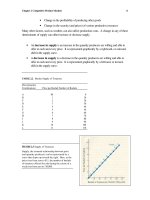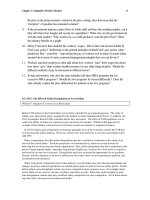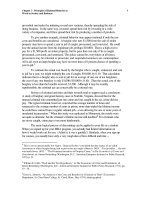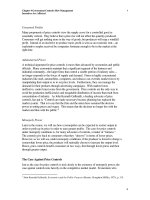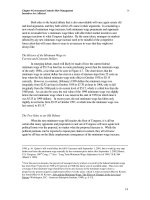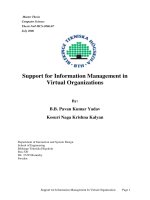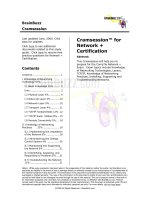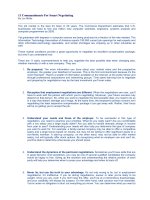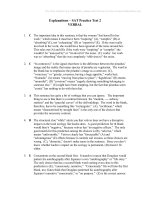Tài liệu Must-haves for Top Resumes doc
Bạn đang xem bản rút gọn của tài liệu. Xem và tải ngay bản đầy đủ của tài liệu tại đây (27.83 KB, 1 trang )
Must-haves for Top Resumes (FREE)
Is your resume ready? This sample FREE topic gives you some great tips to think about. Before you
send out another resume, read this entire guide and increase your chances of getting the interview!
Must-haves for Top Resumes (FREE)
Having a great resume (that works) is not as simple as some may think. Such documents must be
orderly, concise and most importantly, they must illustrate a candidate’s best qualities as they relate
to the job at hand. To come out a winner in the resume game, you should present information
employers look for in a professional manner. So before making mass mailings, give your
killer resume
one last look. Check to see if your resume is:
• Organized. Make sure the information you’ve presented can be easily understood. Is there a
natural flow of progression as you read over it? If bits of data seem out of place or are not
clearly explained, change the order and see if this clears things up. You want to impress
employers, not confuse them.
• Brief. Even if you have 25 years of experience and three degrees form Ivy-leagues schools, you
can still sum up your background in two-pages or less. Employers don’t have the time to read
lengthy accounts of credentials. They can become annoyed and disregard long resumes,
despite applicants’ qualifications.
• Condensed. Give employers the 60-second-version of all relevant events, experience, skills
and accomplishments you think make you a solid candidate. Don’t elaborate too much on any
one detail; just highlight the best things about each thing you excel in. This action will “tease”
employers into wanting to talk with you more about your endeavors.
• Informative. A resume shows who you are and what you’re good at. If employers read about
you and wonder what they just read, more than likely they will toss those resumes right into
the wastepaper basket. You have limited space, so use it wisely. Tell everything you can and
give specific amounts and examples when possible.
• Nice-looking.
Killer resumes arrive unfolded in 9”-x-12” catalog-style envelopes. They are
printed on white, ivory or light gray parchment or resume paper for smaller firms and white
copy paper for larger corporations. They have a fair amount of white (blank) space and are
free of typos, rips, stray marks and grammatical errors. The same fonts are used consistently
throughout the resume, making it easier to read over.
• Fact-based. When it comes to resumes, employers want “just the facts, ma’am.” Try to steer
away from opinions and stick with the nitty-gritty reality. For example, don’t say best
salesman in Tri-county area. Instead, opt for awarded best salesman for the Tri-County area 4
years in a row. This way, you have stated the truth while highlighting your impressive track
record.
• Complete. While you can include an objective, summary, work history or professional
affiliations, all resumes need a heading, an experience section and an education section. The
information contained in these sections is vital for employers to gauge if you are qualified for
the job. If you skip one of these important parts, you may be asked to skip the job interview
too.
• Professional. While humor goes a long way in interviews, shy away from making cute jokes or
trying to appear humorous in resumes. Winning resumes showcase qualifications with decorum.
Don’t add anecdotes or funny stories about your last employer. Save workplace jokes for the
bar.

